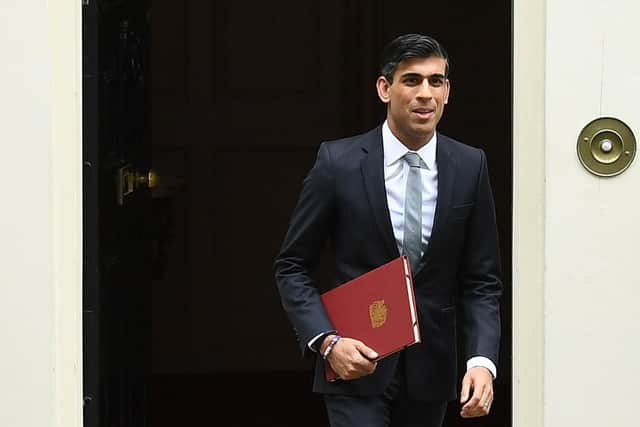There are ways to reduce stamp duties on property, and there are new discounts available - Gareth Shaw


A It’s worth running through how stamp duty land tax works to understand what your options are. In England and Northern Ireland, the amount of tax you pay when you purchase a property is tiered, meaning that you pay different amounts on different proportions of the value of your property.
You pay nothing on the first £125,000; 2% on the amount between £125,000 and £250,000; 5% between £250,000 and £925,000; 10% on the proportion between £925,000 and £1.5m and 12% on anything above £1.5m. These rates apply to anybody who has owned a home before.
Advertisement
Hide AdAdvertisement
Hide AdRates differ in Scotland (and Wales). In Scotland, homebuyers pay Land and Buildings Transaction Tax. Nothing is paid on the £145,000; 2% is paid on the amount between £145,000 and £250,000; 5% on the amount between £250,000 and £325,000, 10% on the proportion between £325,00 and £750,000; and 12% on anything above £750,000.I can see that there are two possible ways of reducing your stamp duty tax bill. If you already own a property, and you’re purchasing a second property, there is a 3% surcharge added to your stamp duty bill at each tier. In Scotland, you pay an ‘additional dwelling supplement’, which is 4%.
The other benefit you may be looking to take advantage of is the stamp duty relief offered to first time buyers. They pay nothing on the first £300,000 of a property’s value, and 5% on the amount between £300,000 and £500,000, saving as much as £5,000 compared to the standard rates. I can see why you would want to explore this.
In Scotland, there is also a discount for first-time buyers. They pay nothing up to £175,000, and 2% on the proportion between £175,000 and £250,000, after which there are no further discounts. The tax-free limit for properties bought by first-time buyers is £175,000, meaning that up to 80% of first-time buyers will pay no stamp duty at all.
There are some caveats, though. This discount only applies to properties worth £500,000 or less, and can only be used by genuine first-time buyers – where any owner of the property has never owned a property before.Unfortunately, the fact that you are married scuppers both of these potential savings. For the purposes of stamp duty calculations, married couples and civil partners are treated as one ‘unit’ so even though your wife doesn’t currently own a property, she will be treated as though she does when you buy your new property as you already own an interest in another property.
As you say you’re unlikely to have sold your current property by the time you complete, you’re going to be buying a second property. Even if you put the property solely into your wife’s name, you’d still need to pay the 3% additional stamp duty that applies to second homes. In Scotland, the surcharge is 4%.
There is some good news here. You can claim back the extra stamp duty you pay if you sell your current property within three years of the purchase date of your new home. You can do this by post or through the government’s Gateway service at gov.uk.
And to finish on an even brighter note – if your purchase completes by 31 March, you’ll get a discount on your stamp duty bill due to changes made to the tax to stimulate the housing market during the pandemic.
You’ll pay 3% up to £500,000 and 8% on the amount between £500,000 and £925,000, rather than £3% on the amount up to £125,000, 5% on the amount between £125,000 and £250,000 and 8% on the amount between £250,000 and £925,000. Then you can claim back when you sell, which means that if you are buying a new property worth £500,000 or less, you won’t pay any stamp duty at all.
Advertisement
Hide AdAdvertisement
Hide AdIn Scotland, the land and buildings transaction tax discount is applied to the first £250,000 of a property’s value, where no tax will be paid. The proportion between £250,000 and £325,000 is taxed at 5% as standard. If you’re buying a second property, that means tax of 4%, which can be reclaimed at revenue.scot. Find out more at which.co.uk/stampduty.
Gareth Shaw is Head of Money at Which?